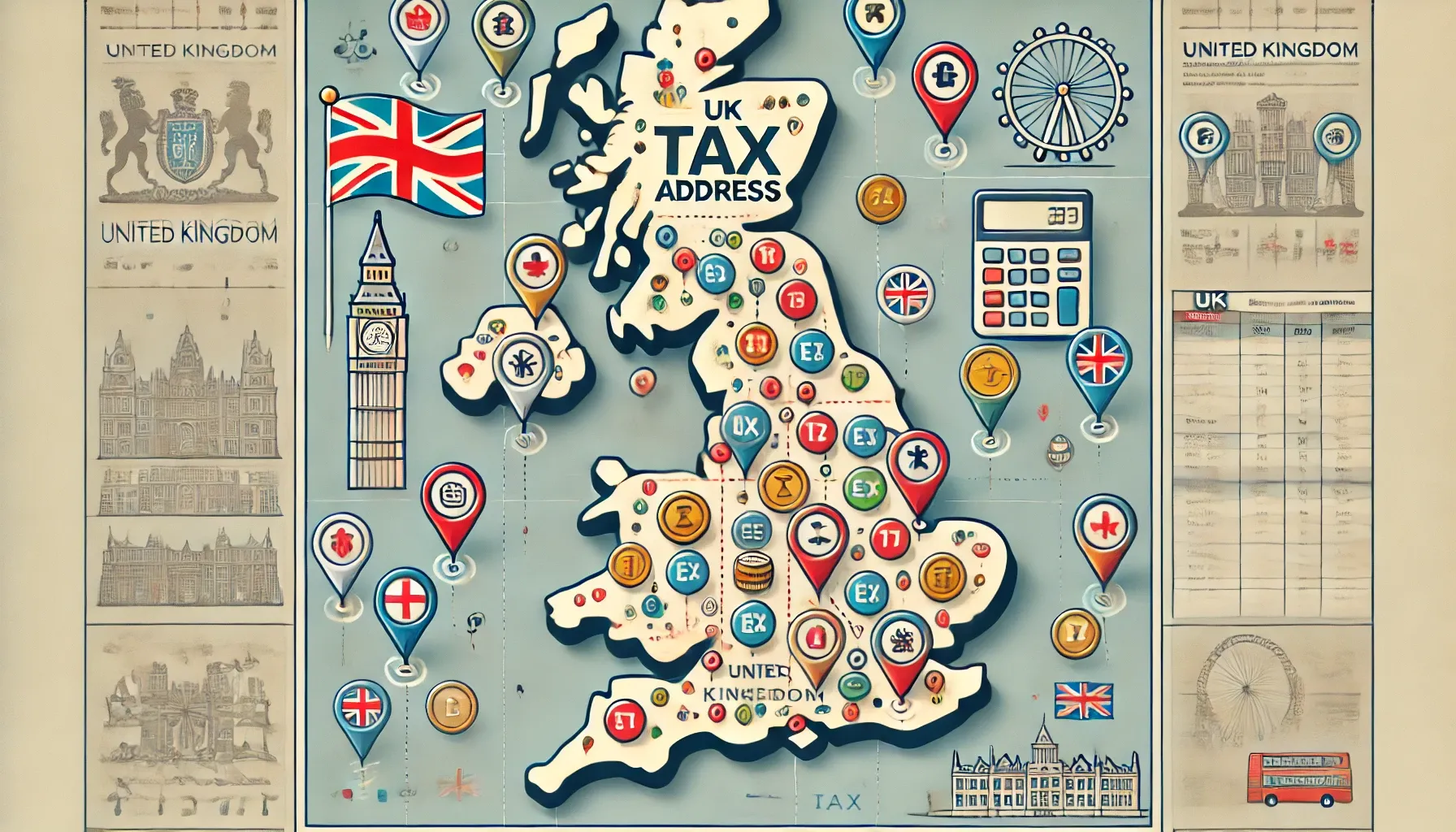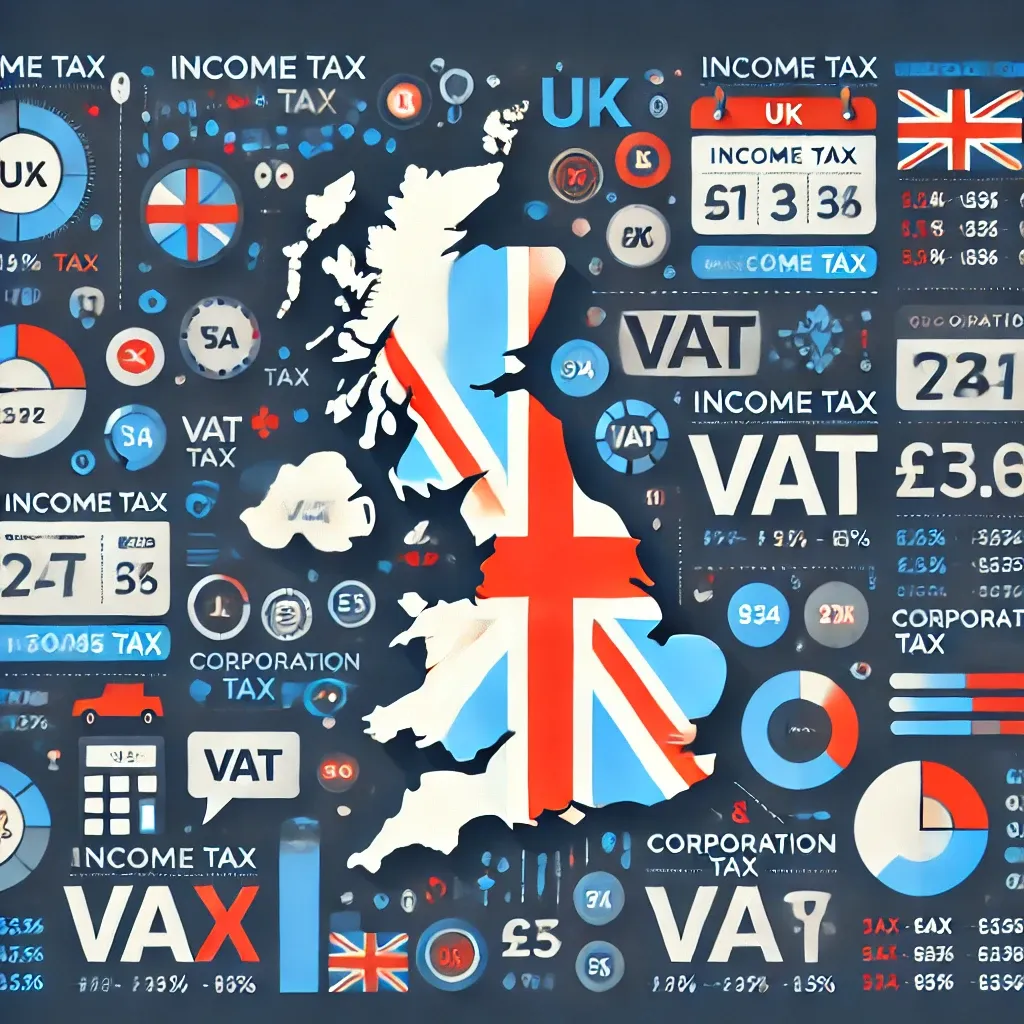Features of taxation in the United Kingdom

- Taxation in the United Kingdom: features and changes
- The tax system of the United Kingdom
- Stamp tax: investment optimization and savings
- Changes in property taxation in the UK
Features of taxation in the United Kingdom
Income taxes here are not that high; only income earned in the UK is taxed. Russia and the United Kingdom have a double taxation agreement, which helps avoid being taxed twice. The tax year in the UK starts on April 6 and ends on April 5 of the following year.
Changes since 2015
The tax system in the United Kingdom has undergone changes, and now non-residents are required to pay tax on capital gains. Since April 1, 2015, the calculation of capital gains tax for properties valued over £2 million has changed. These changes have not stopped the flow of investments, and wealthy individuals from many countries, including Russia, continue to purchase real estate in the UK.
Types of taxes in the UK
The types of taxes include direct taxes, such as personal income tax, corporate income tax, capital gains tax, and inheritance tax, as well as indirect taxes like value-added tax, excise duties, and stamp duties. There are also local taxes, including property tax.
Features of income tax
Income tax is the main tax in the United Kingdom, calculated based on a person's income. The tax rate is progressive, meaning that as income increases, so does the tax. As of today, the amount of tax-free income for taxation is £9,205.
Tax System of the United Kingdom: Overview
The UK has a strict system of taxes that are mandatory for all taxpayers and employers. National insurance contributions range from 9% to 13.8% and are levied on the income of individuals. These funds are used to provide social protection, including pensions and health services.
Value Added Tax (VAT)
For goods and services, a value-added tax (VAT) of 20% applies. This indirect tax is collected at each stage of the production or sales process, including the final sale of the product.
Capital gains tax
Capital gains tax includes income from the sale of capital assets such as real estate and securities. The amount of tax depends on the duration of ownership of the assets and the amount of income received. The tax-free threshold of £11,000 allows individuals to be exempt from tax on income below this amount for the year.
Stamp duty
The stamp duty charged when purchasing real estate or land plots includes different rates depending on the value of the transaction. For individuals, the first £125,000 is taxed at a rate of 0%, while amounts above this are taxed at rates of 2%, 5%, 10%, and 12% respectively for different portions of the value.
Rates for individuals:
- £125,000 and below:0%
- From £125,001 to £250,000:2%
- From £250,001 to £925,000:5%
- From £925,001 to £1.5 million:10%
- Over £1.5 million:12%
Rates for legal entities:
- For a price over £500,000:15%
Experts note that the increase in the stamp duty on expensive real estate stimulates the construction industry, making investments in new construction more attractive. Investments in construction can yield significant returns for owners, exceeding 20% of the property's value. This factor makes construction a more appealing investment option compared to purchasing already completed housing.
Thus, the tax system of the United Kingdom stimulates economic activity.

Stamp tax: calculation and investment planning
The purchase of a land plot is often accompanied by the payment of a stamp duty, which is calculated based on the value of the acquired plot. It is important to note that when calculating the amount of this tax, the cost of any building planned to be constructed on the acquired land is not taken into account.
For example, if the price of a finished house is £15 million, the amount of stamp duty will be quite significant - £1,713,500. However, if the cost of the land is £7.5 million and the cost of building a new house is also £7.5 million, the amount of stamp duty will decrease to £813,750. Thus,effective investment planningIt will allow savings of up to £900,000 on stamp duty and provide the opportunity for phased financing of construction, which will help avoid high interest rates on loans from English banks and save an additional £450,000.
Land and Buildings Transaction Tax in Scotland
In Scotland, as of April 1, 2015, the stamp duty on property purchases was abolished; however, buyers are required to pay the land and buildings transaction tax, which is calculated progressively based on the value of the transaction and ranges from 2% to 12%.
29 September
29 January
9 October 2024
9 October 2024
Changes in UK tax legislation
As of April 1, 2015, the United Kingdom made changes to its tax legislation regarding capital gains tax for non-resident individuals. The aim of these changes was to prevent the formation of a property bubble, ensure housing affordability for citizens, and increase budget revenues by £700 million. Corporate investors are not subject to these new regulations. Additional information about the tax changes can be found on the official website of the UK government.
United Kingdom: changes in property taxation
The United Kingdom has made changes to the property value growth taxation system. Now, the tax is levied on a progressive scale of up to 12% for properties valued over £2 million. Legal entities are subject to a rate of 28%. These changes have not affected investor interest due to the high investment potential of the UK.
Expenses when purchasing real estate
In addition to tax, the investor must account for many additional costs such as real estate agency fees, municipal fees and legal fees. The use of a mortgage loan also requires consideration of the cost of a tax advisor.
The process of buying real estate in the UK
The UK does not require the mandatory involvement of a lawyer or notary for real estate transactions; however, about 90% of transactions still go through them. Be sure to read the course "Buying Real Estate in the UK."
Taxation and fees system
There is no annual property tax in the UK. Instead, a monthly municipal charge (council tax) is collected, which depends on the value of the property. Additionally, there are monthly service charges for property maintenance.
Punishment for non-payment of taxes
In case of debt, the tax system in the United Kingdom collects the amount through the court. Inheritance and gift tax is paid from the property or cash of the deceased owner and their direct heir.
Features of taxation in the United Kingdom
The tax system in the United Kingdom has several differences compared to other countries. The country is often referred to as a "tax haven" because it has relatively low income taxes that only apply to income earned within the UK.
Recent changes
Since 2015, the tax system in the United Kingdom has undergone a number of changes. For example, non-residents are now required to pay capital gains tax, which was previously only applicable to citizens of the country. The calculation method for capital gains tax on properties valued over £2 million has also changed: it is now a progressive rate rather than a fixed rate, which can reach up to 12%.
Three tips for investors
- Study the tax regulations:It is important to understand the specifics of taxation when purchasing real estate in the United Kingdom.
- Keep track of changes:Tax laws can change, so it's important to stay informed about the latest updates.
- Utilize double taxation conventions:If taxes have already been paid in your country, they may be deductible in the UK.
Types of taxes
National:
- Direct taxes: personal income tax, corporate income tax, capital gains tax, oil revenue tax, inheritance tax.
- Indirect taxes: value added tax, duties and excise taxes, stamp duties.
Locals:
- Property tax.
Income tax
The main tax in the United Kingdom is income tax. It is calculated based on an individual's income and is progressive. The amount of tax-free income currently stands at £9,205.
Capital gains tax
Non-residents are now also liable to pay capital gains tax in the UK. This tax has become progressive for properties worth more than £2 million.
Real estate taxes
The stamp duty for the state when acquiring real estate or land in the United Kingdom depends on the transaction amount and is applicable to both residents and non-residents.
Stamp duty rates for individuals in the UK:
- 0% on the first £125,000 of the property value.
- 2% of the next £125,000.
- 5% on the next £675,000.
- 10% of the next £575,000.
- 12% on the remaining part of the cost (over £1.5 million).
For legal entities involved in real estate transactions valued over £500,000, the stamp duty rate is 15%.
Comment
Popular Posts
29 September
354
9 October 2024
1485
9 October 2024
9935
Popular Offers

Subscribe to the newsletter from Hatamatata.com!
Subscribe to the newsletter from Hatamatata.com!
I agree to the processing of personal data and confidentiality rules of Hatamatata




